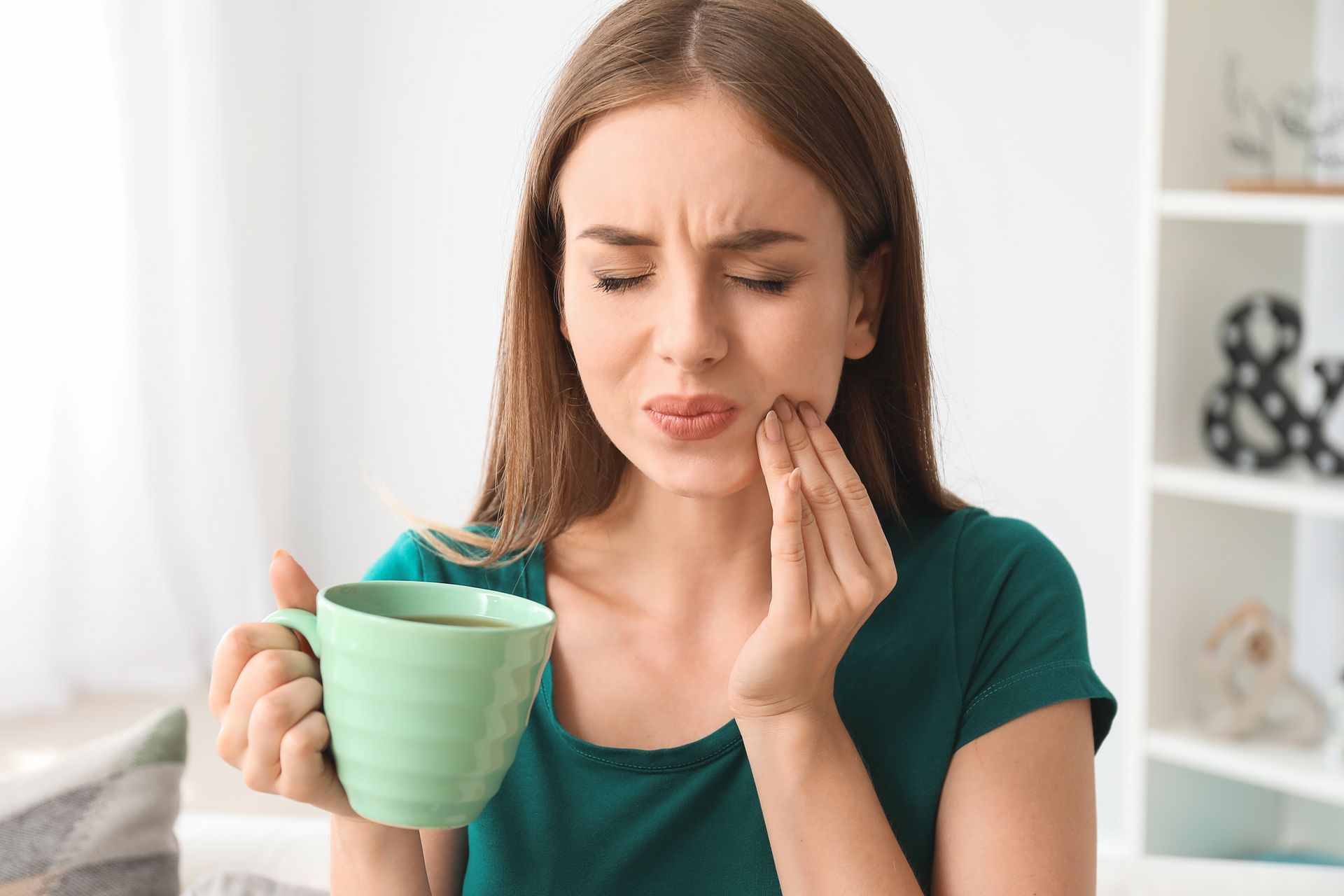Why Dental Cleanings Are Important for Adults
Dental cleanings are not just for keeping your smile bright. Regular cleanings are crucial for maintaining overall health. Many adults think they can skip these appointments, but that can lead to serious problems. A professional dental cleaning helps prevent common issues like cavities and gum disease. It also gives the dentist a chance to spot signs of other health problems early.
When you visit your dentist for a cleaning, you are doing more than just cleaning your teeth. The dentist or hygienist removes plaque and tartar build-up that you can't get rid of with regular brushing and flossing. They also check for signs of oral cancer and other health issues. These appointments are vital for catching small problems before they become big ones.
Skipping dental cleanings can lead to more than just bad breath or yellow teeth. It can result in severe dental issues that impact your overall health, from heart disease to diabetes. Understanding the importance of these cleanings and how to care for your teeth between visits can make a big difference. Taking care of your mouth is an important part of taking care of your whole body.
Regular dental cleanings lay the groundwork for a healthier lifestyle. In this article, we'll explore the many benefits of these cleanings, what to expect during your appointment, and why it's risky to skip them. We'll also share tips for maintaining good dental health between visits.
The Health Benefits of Regular Dental Cleanings
Preventing Cavities and Gum Disease
One of the most important benefits of regular dental cleanings is preventing cavities and gum disease. Plaque, a sticky film of bacteria, constantly forms on our teeth. If not removed, it can harden into tartar, which leads to cavities. Professional cleanings get rid of plaque and tartar buildup that you can’t remove at home. Cleanings also help prevent gum disease, which can result in gum inflammation, tooth loss, and other severe conditions if left untreated.
Detecting Oral Cancer Early
Dental cleanings are also critical for early detection of oral cancer. During your cleaning, your dentist or hygienist will check your mouth for any signs of oral cancer. Early detection is key to successful treatment. Regular visits ensure that any unusual changes or symptoms are spotted as soon as possible. This proactive approach can make all the difference when it comes to your health.
Reducing the Risk of Heart Disease and Diabetes
There is a strong link between oral health and overall health. Poor dental hygiene can increase the risk of heart disease and diabetes. Bacteria from gum infections can enter your bloodstream and affect your heart. Similarly, gum disease can complicate diabetes management. Regular dental cleanings help keep your mouth healthy, reducing these risks. A clean and healthy mouth supports a healthy body.
What Happens During a Dental Cleaning
Steps of a Professional Cleaning
A typical dental cleaning involves several steps. First, the hygienist will use a small mirror to check your teeth and gums for any signs of problems. Next, they will use special tools to remove plaque and tartar from your teeth, especially around the gum line. Polishing follows to remove any stains and make your teeth shine. Finally, they may apply a fluoride treatment to help protect your teeth until your next visit.
Tools and Techniques Used by Dental Hygienists
Dental hygienists use a variety of tools and techniques to clean your teeth. Ultrasonic scalers may be used to break up big chunks of tartar. Hand scalers help clean smaller areas. After scaling, a gritty toothpaste and an electric brush polish your teeth. Sometimes, flossing is done to remove any leftover debris. Hygiene tools are designed to clean thoroughly and safely, leaving your mouth feeling fresh.
What to Expect During the Visit
At the start of your visit, the hygienist will discuss any concerns you have and review your dental history. They will then proceed with the cleaning process. You might feel some pressure or slight discomfort, but the cleaning should not be painful. Throughout the visit, the hygienist offers tips on maintaining oral health at home. After the cleaning, your dentist will check in to ensure everything looks good and address any issues. Regular dental cleanings are essential for keeping your teeth and gums in top shape.
Why Skipping Dental Cleanings Is Risky
Accumulation of Plaque and Tartar
When you skip dental cleanings, plaque and tartar build up on your teeth and gums. Plaque is a sticky film of bacteria that can harden into tartar if not removed. Tartar is much harder to clean off and can only be removed by a dentist or hygienist. Accumulated plaque and tartar can lead to cavities and gum disease. Regular cleanings keep them in check, preventing these problems from escalating.
Potential for Severe Dental Problems
Missing dental cleanings increases the risk of serious dental problems. Cavities can develop into tooth decay that might require a filling, crown, or even a root canal. Gum disease, if untreated, can lead to tooth loss. These severe problems can cause pain, difficulty eating, and big dental bills. Staying on top of your cleanings helps avoid these issues and keeps your mouth healthy.
Impact on Overall Health
Skipping dental appointments affects more than just your teeth. Poor oral health can have a significant impact on your overall well-being. Gum infections and decay can lead to infections that spread to other parts of your body. There is a link between oral health and heart disease, diabetes, and even respiratory infections. Regular dental cleanings help maintain your overall health by keeping your mouth healthy and free from harmful bacteria.
Maintaining Dental Health Between Cleanings
Importance of Daily Oral Hygiene Habits
Taking care of your teeth and gums doesn’t stop at the dentist's office. Daily habits are crucial for maintaining your dental health between cleanings. Brushing your teeth at least twice a day with fluoride toothpaste and flossing daily helps remove plaque and food particles. These routines prevent cavities and keep your gums healthy. Consistent oral hygiene habits make your dental cleanings more effective.
Recommended Products for At-Home Care
Using the right products can make a big difference in your oral care routine. Choose a soft-bristled toothbrush that fits your mouth comfortably. Replace it every three months or when the bristles fray. Fluoride toothpaste is important as it helps strengthen your teeth and prevent decay. Consider using an antimicrobial mouthwash to reduce plaque and freshen your breath. Dental floss or interdental cleaners help clean between your teeth where your toothbrush can’t reach.
Tips for a Healthy Diet and Lifestyle to Support Oral Health
A healthy diet and lifestyle play a vital role in maintaining oral health. Limit sugary and acidic foods and drinks, as they can contribute to tooth decay. Foods high in vitamins and minerals, like leafy greens, dairy products, and lean proteins, support healthy teeth and gums. Drinking plenty of water helps wash away food particles and bacteria. Avoid smoking and reduce alcohol consumption, as these habits can harm your oral health. A balanced diet and a healthy lifestyle support the benefits of your dental cleanings.
Conclusion
Regular dental cleanings are essential for maintaining both your oral and overall health. They help prevent cavities and gum disease, detect oral cancer early, and even reduce the risk of heart disease and diabetes. During cleanings, dental hygienists use specialized tools to remove plaque and tartar, polish your teeth, and provide preventive treatments like fluoride. These appointments are not just about keeping your teeth clean; they are critical for catching potential health problems early.
Skipping dental cleanings can lead to severe dental problems, including cavity progression, gum disease, and tooth loss. These issues don’t just stay in your mouth. They can affect your overall health, leading to more serious conditions. Maintaining good oral hygiene between cleanings by brushing, flossing, and using the right products, along with a healthy diet, supports a lifetime of good oral health.
Make oral health a priority. If you're due for a dental cleaning or want to ensure your teeth and gums are in great shape, contact us at Aria Dental of Annapolis. Our
dental office in Annapolis, MD, is dedicated to providing gentle, family-oriented dental care. Schedule your appointment today and take the first step toward a healthier smile!



Share This Post

